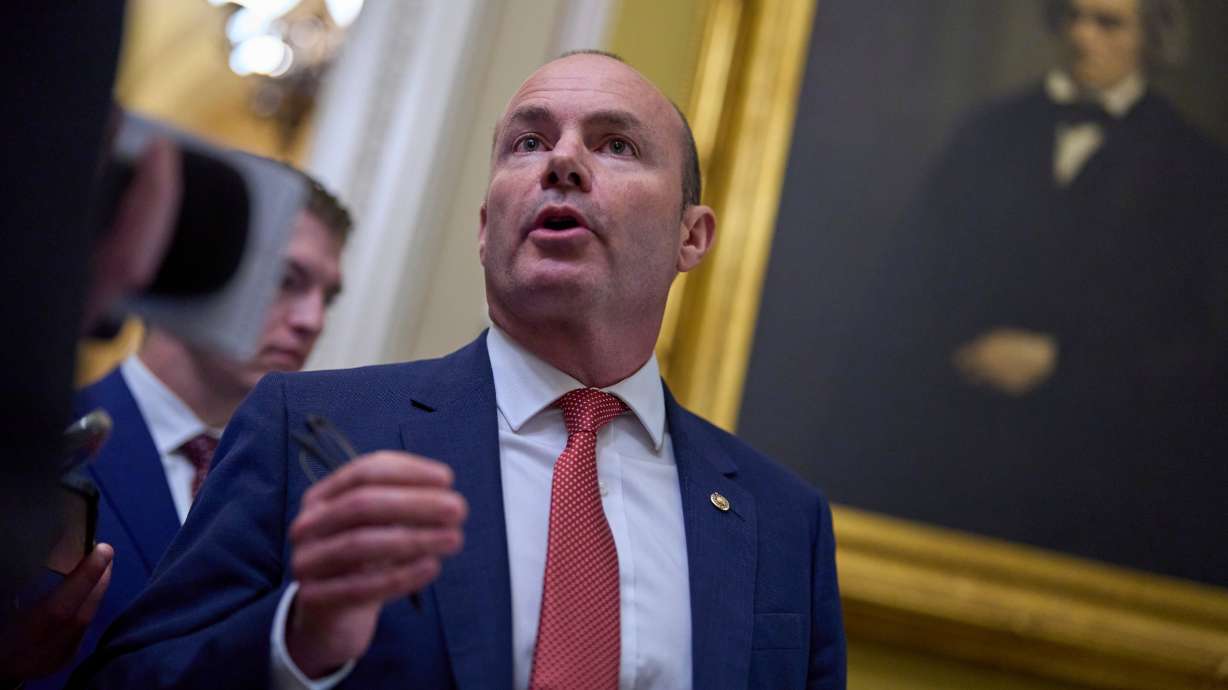- A key proposal by Sen. Mike Lee was removed from Trump's tax bill.
- The REINS Act aimed to expand congressional control over federal agency actions.
- The Senate parliamentarian ruled it ineligible for reconciliation, requiring language adjustments.
WASHINGTON — A proposal to expand congressional control over federal policy decisions was stripped from President Donald Trump's massive tax bill over the weekend despite a push from GOP leaders to include the language.
The provision, a slimmed-down version of Sen. Mike Lee's REINS Act, sought to implement new requirements for federal agencies, subjecting proposed agency actions to be approved by Congress before they can take effect. The statute primarily targeted policies that increase revenue and would allow for review of past rules already approved by agencies.
However, that measure was removed from the bill's language on Sunday by the Senate parliamentarian, a nonpartisan adviser who must evaluate each provision in the tax bill to ensure it adheres to the strict rules of reconciliation.
Through the budget reconciliation process, Republicans can circumvent Democratic opposition and prevent a filibuster to expedite the passage of certain legislation and go around the minority party by enacting key pieces of their agenda with a simple majority vote.
There are certain rules that dictate how often reconciliation can be used, and the procedure can only be utilized to advance budget-related legislation such as taxes, spending and the debt limit.

Once a budget reconciliation blueprint is finalized, it then only requires a simple majority in the House and Senate to pass.
However, the parliamentarian ruled that the current language related to Lee's REINS Act did not adhere to those guidelines, making it ineligible for simple-majority passage. However, Lee could still adjust the language before the package reaches the Senate floor, which GOP leaders hope to accomplish by the end of this week.
Lee has pushed for years to pass the REINS Act, which would require regulations with an economic impact of $100 million or more to be approved by Congress, giving lawmakers more control over how agencies operate.
Under current law, Congress has the authority to pass resolutions that nullify certain agency regulations if those rules are considered to be harmful. However, the REINS Act would seek to ensure that most proposed regulations must first be cleared by Congress before it takes effect, giving lawmakers the ability to halt certain regulations if they disapprove.
Some version of the REINS Act has been introduced in every Congress since 2009. The House has managed to pass several iterations of the bill but the proposal has never managed to pass the Senate, where it would typically need 60 votes to be approved.
And to get enough votes to support it, Lee is suggesting to somehow attach the bill to the reconciliation package, which would only require 50 votes in the Senate.
Lee has not yet publicly responded to the parliamentarian's ruling, and his office did not respond to a request for comment by the Deseret News.










